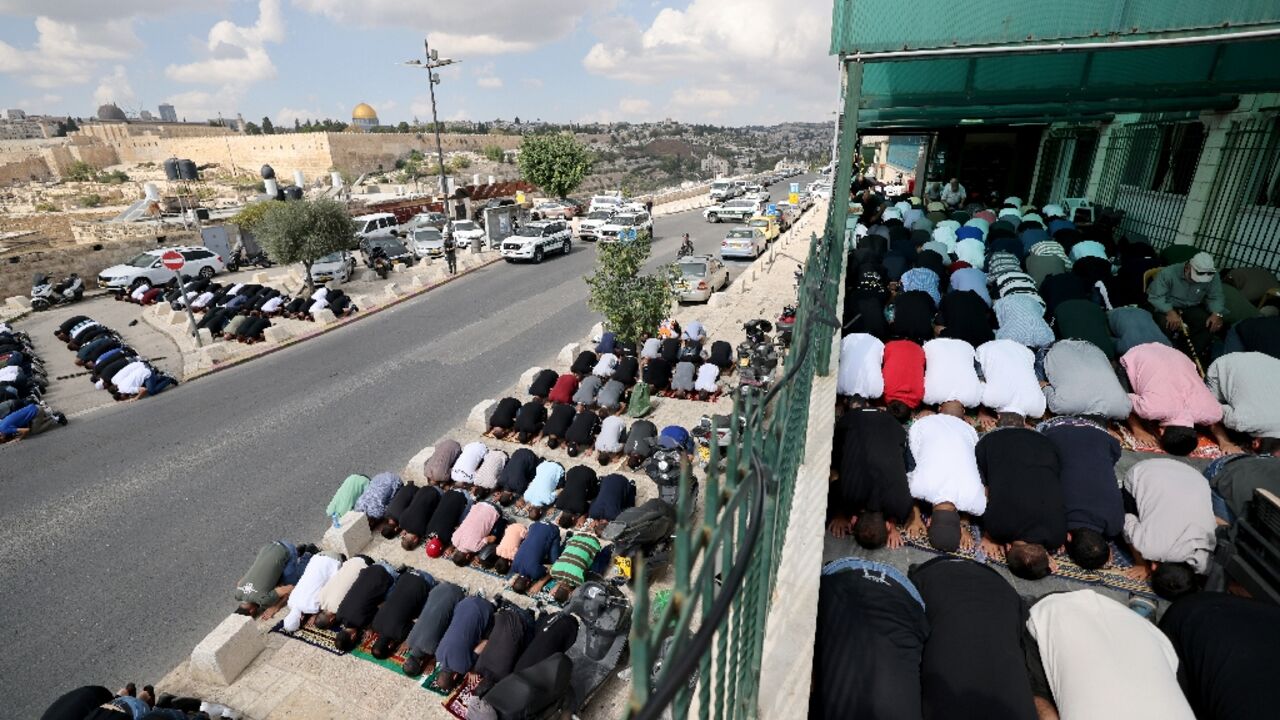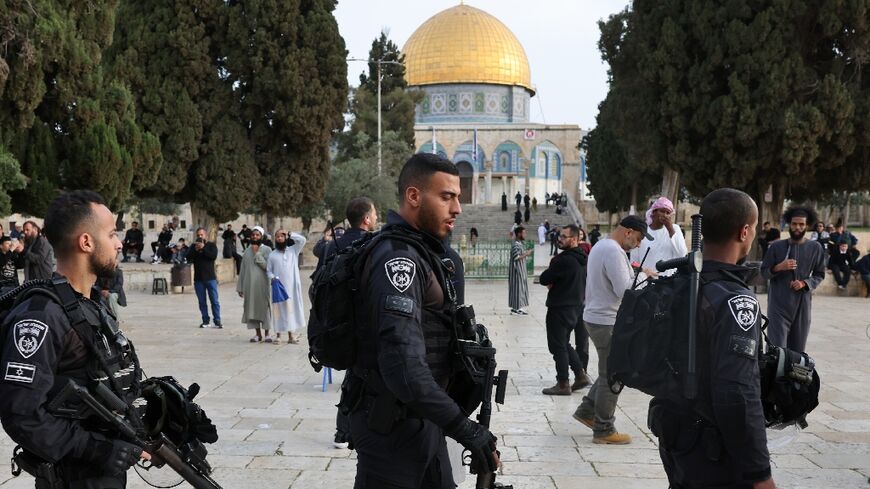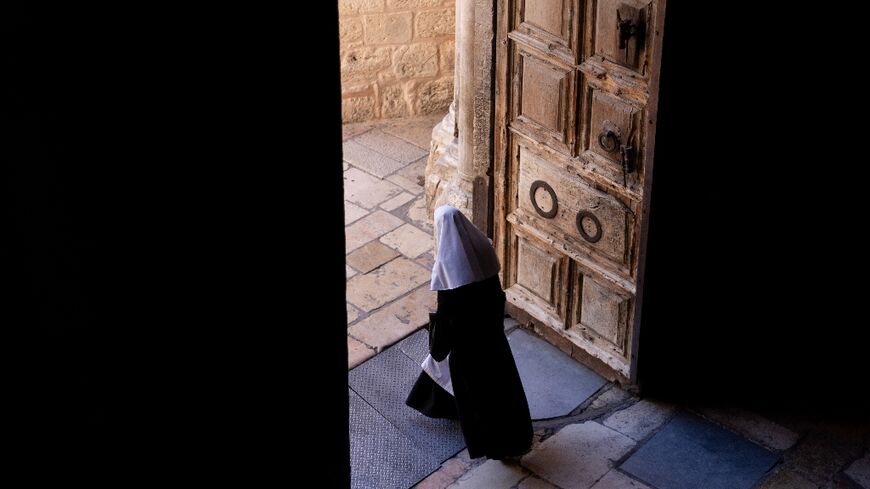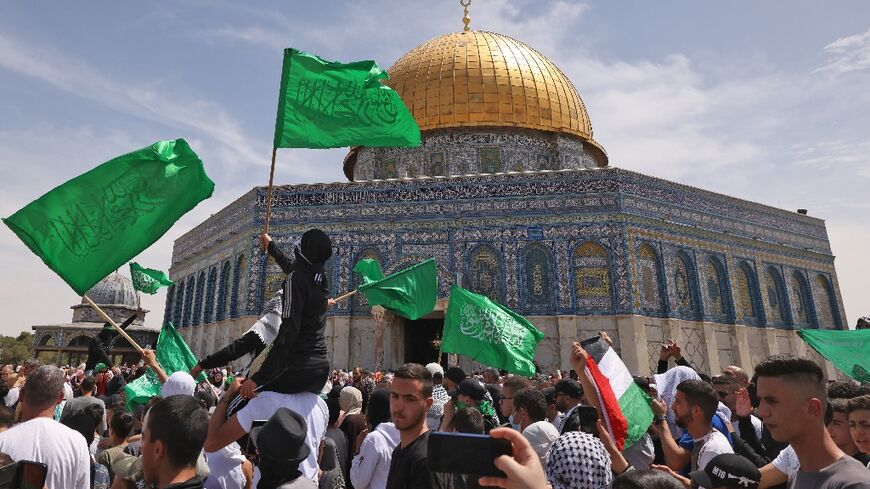Jerusalem's holy sites deserted on second Friday of war

Fatima lives a few kilometres from Jerusalem's Al-Aqsa mosque but had to cross four checkpoints to get there for Friday prayers with the esplanade largely deserted since war erupted between Israel and Hamas.
Normally packed for Friday prayers, there were only a few thousand worshippers present at the compound in the Old City of Jerusalem, which is the third holiest site in Islam but is also the most sacred place for Jews.
The compound has been largely deserted since October 7 when Hamas militants from Gaza stormed across the border beginning an attack that has killed at least 1,400 people in Israel, mostly civilians who were shot, mutilated or burnt to death on the first day, Israeli officials say.
Israel has struck back at Gaza with a relentless bombing campaign which has killed more than 4,100 Palestinians, mainly civilians, according to the enclave's Hamas-run health ministry.
"Since it started, I haven't been back to the Old City nor to Al-Aqsa," says Fatima, a 37-year-old Palestinian who, like many others, did not want to give her family name for fear of reprisals as war rages between Israel and Hamas.
Large numbers of Israeli security forces could be seen checking ID papers and turning away men under 50 from the Old City esplanade which is located in east Jerusalem, a majority Palestinian area seized by Israel during the 1967 Six Day War and later annexed in a move never recognised by the international community.
Unable to reach the compound, hundreds could be seen praying on the pavements, while elsewhere, Israeli police fired skunk water and tear gas to disperse others who were trying to enter the Old City, AFP correspondents said.
Elsewhere in the Old City, the Church of the Holy Sepulchre was deserted, with a lone Greek Orthodox priest praying alone at the normally crowded site where Christians believe Jesus was crucified, buried and resurrected.
And at the Western Wall, the holiest place where Jews can pray, the vast esplanade which is normally packed in the hours before the Jewish sabbath begins at sundown, is also empty.
It was early on a sabbath morning two weeks ago that Palestinian militants began their bloody attack, the most deadly ever to hit the Jewish state since it was founded in 1948.
In the Muslim Quarter, most shops were shuttered, with Hassan Omar, 72, one of the only shopkeepers to open up, laying out prayer rugs and embroidered children's dresses alongside colourful scarves.
"Since the war started, things have been very difficult. I come every day and pray, I go to Al-Aqsa then see if there any customers and if there aren't, I leave," he told AFP, expressing sorrow for the deaths of all civilians on both sides.
"It's like during Covid, there's no-one."
For Old City traders who depend on tourism, the war has spelt financial ruin, says fellow shopkeeper Mohammed Natsheh.
"The whole economy has collapsed."






